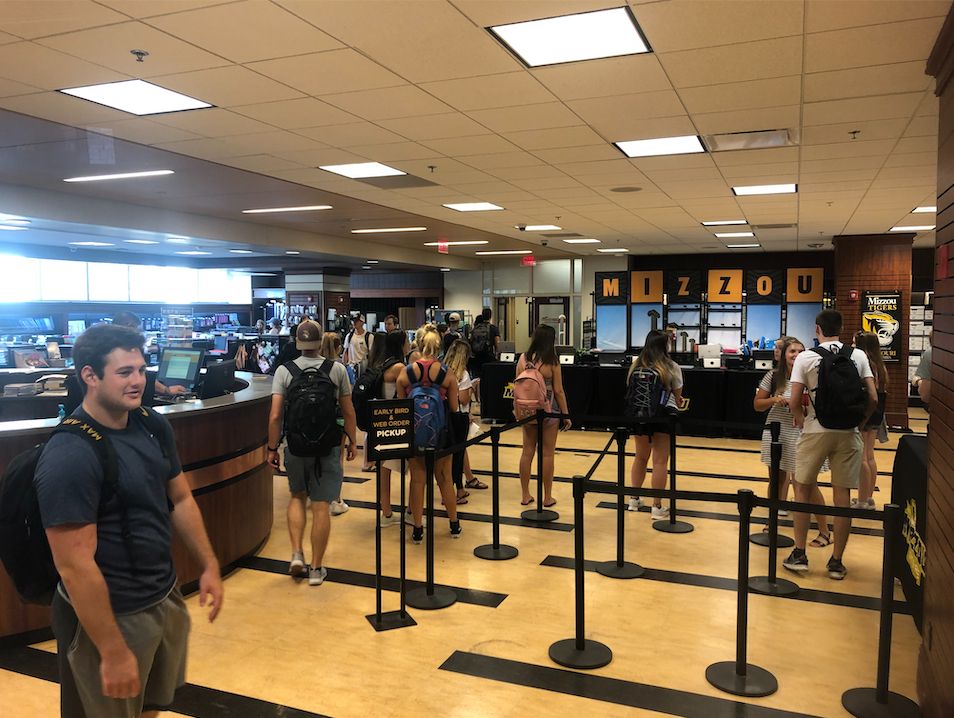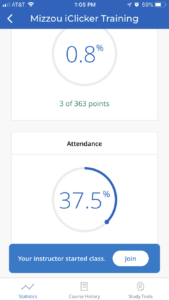Published on Aug. 20, 2019

Students wait in line at The Mizzou Store in the MU Student Center to start the fall 2019 semester.
As part of its continued effort to reduce the cost of higher education, Mizzou now provides the iClicker app free to students. iClicker — which has been in use at MU since 2008 — allows instructors to post questions and other interactive prompts during lectures, then collect real-time feedback to help gauge student comprehension and engagement.
What was once a handheld remote device purchased along with textbooks at the beginning of the academic year, iClicker is now a smartphone app that typically costs $23.99 per student to install. But with Mizzou picking up the tab, students will collectively save nearly $200,000 per year. Support for the technology is provided by MU Course Design and Technology, formerly Educational Technologies at Missouri (ET@MO).
“In the past, most of the iClicker technical issues we had revolved around the physical devices,” says Tanys Nelson, learning technologies manager. “Students would have difficulty registering them, or they would forget to bring them to class. Students never forget their smartphone.”

The iClicker app allows instructors and students en masse to interact during large lectures.
Mizzou made the move with iClicker after competing companies’ products began to surface around campus, meaning students were forced to purchase multiple devices or apps depending on their instructor’s preference. Now, any student with a Mizzou email account can register on the iClicker site free of charge.
“I use the iClicker to ask questions about something important I might have just explained to the class to make sure they caught it,” says Jennifer Wentz, assistant teaching professor of parks, recreation and tourism. “I’ll also present scenarios with four possible choices, then direct them to different discussion boards depending on their answers to engage them further.”
Professors also use iClicker to take attendance. As a result, students report that using iClicker helps keep them more alert and motivates them to come to class.
The agreement with iClicker is just one part of the UM System’s strategic initiative to encourage faculty to adopt or create affordable and open educational resources (A/OER). Other recent agreements include a partnership with McGraw-Hill Education eBooks to make its library of higher education books available and affordable through the UM System’s AutoAccess program, and a contract with Cengage — described as “Netflix for course materials.”
“Students pay a subscription fee, then get access to all the Cengage titles,” says Dale Sanders, interim director of MU Campus Stores and member of the A/OER task force. “We are fortunate that we operate all of the stores in the UM System, so we can leverage the size of the system.
“We are constantly negotiating with publishers to drive down costs.”